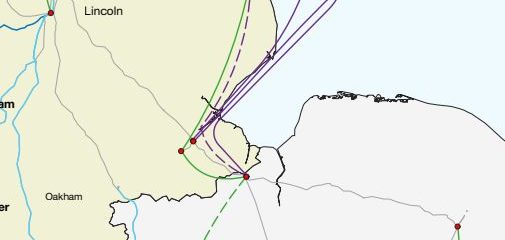Details of how it’s proposed Lincolnshire and Weston Marsh will be a hub for electricity from 2030 have been revealed.
It comes as it was stated a floating wind farm 80km off the coast of Scotland would be another to feed its power into the main grid at the proposed new substation north west of Spalding.
Campaigners including the No Pylons Lincolnshire group have argued the county seems to be a ‘dumping ground’ for new electricity and a newly published document outlines why they might feel that is the case.
The National Grid has published its ‘Beyond 2030’ report which it says is ‘a national blueprint for a decarbonised electricity system in Great Britain’.
It identifies at least three wind farms will be connected via underground cables to the proposed substation at Weston Marsh.
As well as the already known Grimsby to Walpole overhead power lines which have proven particularly controversial, there’s also a new consultation on an underground cable not connecting to Weston Marsh but going straight to Walpole (see page three for more on this consultation).
On why it’s focussing developments on Lincolnshire, the report states that the Humber area doesn’t have the capacity for the new electricity while East Anglia was discounted ‘due to the protected marine environments’ and less room for offshore cables.
Stating that ‘coastal hubs will be critical for energy, the report continues “Some sites along the coastline in Lincolnshire have the required geography and physical characteristics to host cable landing points that will provide connections for offshore electricity superhighways.
“The existing transmission network allows for the integration of this infrastructure into the existing grid, but also the flexibility to structure new infrastructure in a resilient, cost-effective way which reduces the impact on communities and the environment.”
The report also states that ‘power control devices’ be added to the existing circuit between Spalding and Weston Marsh as an improvement to the grid..
No Pylons Lincolnshire chair Andrew Roberts said: “The public in Lincolnshire can be forgiven for feeling confused, if not exhausted, by all that National Grid is suddenly throwing at them.”







